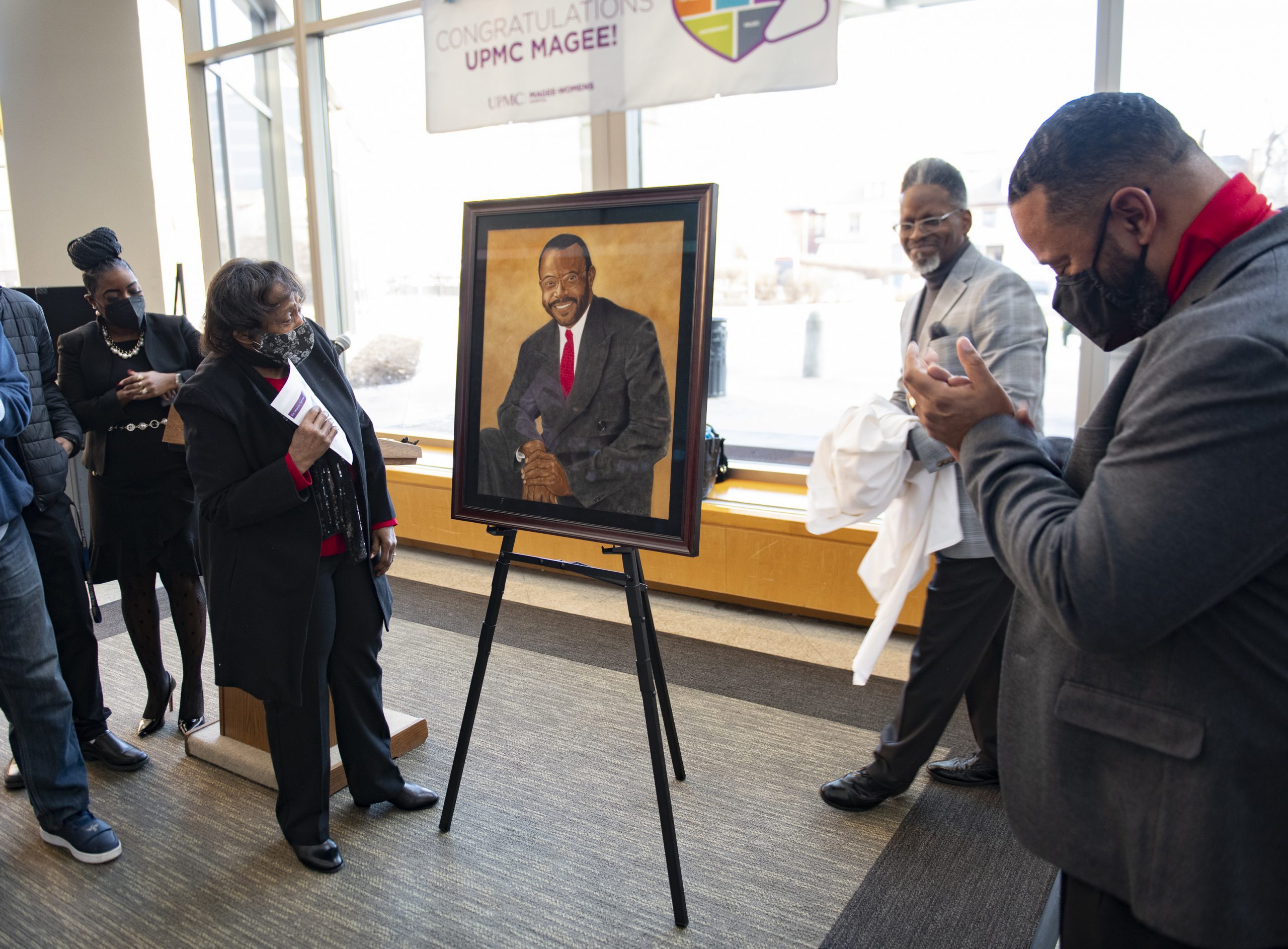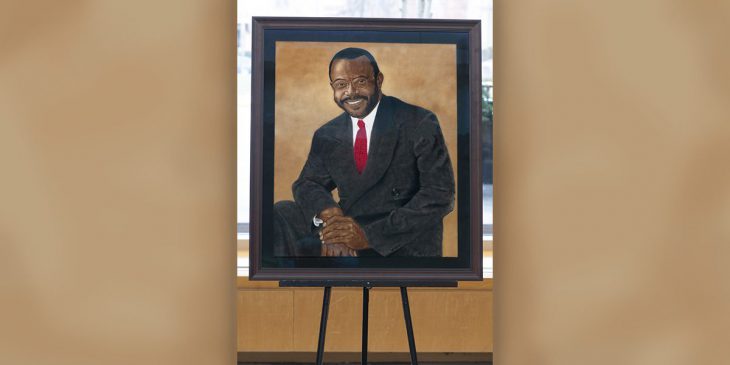UPMC Magee-Womens Hospital is honoring the late Dr. Morris Turner, OB-GYN, by hanging his portrait on the second floor outside the Birth Center beside his plaque. Dr. Turner made exemplary contributions to women’s health care in the city of Pittsburgh and was dedicated to bringing equitable care to women in underserved communities, focused on delivering healthy babies and making family planning safer.

Portrait painted by Douglas Webster
During his career, Turner served as president of the UPMC Magee-Womens medical staff and opened one of the first Black specialty OB/GYN practices in East Liberty— a densely populated Black neighborhood in Pittsburgh. Turner was also the medical director for the Magee-Womens outreach sites at Wilkinsburg and Monroeville. It’s coincidental but also befitting that Dr. Turner is being honored during Black History Month.
Maternal mortality disproportionately impacts Black women in Pittsburgh and the state of Pennsylvania. According to the Pennsylvania Department of Health, Black women are twice as likely to die from complications during birth than White women.
Today, the legacy of Dr. Turner’s work lives on in other women’s health equity advocates at UPMC Magee.

Turner family and painter Douglas Webster unveil Dr. Morris’ portrait during a dedication event at Magee
Jeaonna Hodges, CD-DONA, C.L.C, is one of the lead doulas of the Birth Circle at UPMC Magee. She has attended hundreds of births and believes that it’s important to listen to her patients.
At UPMC Magee, community-based doulas provide free services and support to women at the same level of care as private doulas. The doula services range from assistance during birth to post-partum support.
Jeaonna believes that diversity within health care systems can help lower women’s complications and anxiety during birth. “What would happen if the person that came to take care of me looked like me? That person would understand what I am going through,” she shared.
Dr. Amaris Yandel is a clinical assistant professor and specializes in obstetrics and gynecology at UPMC Magee-Womens Hospital. Dr. Yandel is a member of UPMC’s Health Equity Now committee and sits on the UPMC Maternal Mortality Review Committee. She believes that some of the outcomes and mortality impacting local women are due to racism.
“People feel unheard,” said Dr. Yandel. “Health equity means that it shouldn’t matter how someone comes to us, but we should work to make sure that the outcomes are good and equal.”
“Finding a doctor who you can trust and have a good relationship with is important,” Yandel shared.
UPMC Magee-Womens Hospital has launched UPMC Health Equity Now— a group led by UPMC employees— to serve as a voice for Black and Brown women.
For information, please visit UPMCMagee.com









